#usman dan fodio
Text
The Legacy of Nana Asmaʾu: Scholar, Poet, and Islamic Leader
Nana Asma’u, a remarkable figure in the history of Nigeria and Islam, was much more than just a princess. She was a poet, a teacher, and a prominent female scholar who left an indelible mark on her society and continues to inspire people today.
Born in 1793 into a family deeply influential in the establishment of the Sokoto Caliphate, Nana Asma’u was destined for greatness. Her father, Usman dan…
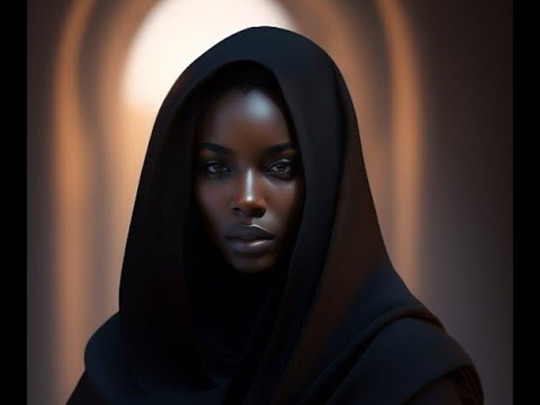
View On WordPress
#African History#Fula#Fula history#Fula poet#Fula princess#Fula teacher#Nana Asmaʾu#Nigeria history#Sokoto Caliphate#Usman dan Fodio#West African
1 note
·
View note
Text
Usman dan Fodio is a fairly typical kind of figure in Islamic history:
It should be noted further on those same lines that Usman dan Fodio is a very typical figure in Islamic history. The self-proclaimed reformer renewing the state against the loathsome semi-godless hedonists of the settled cities with all the wealth, proclaiming himself the renewer and restorer of the Ummah. He builds an army from a group of otherwise-divided tribal structures, creating states more or less ex nihilo, and proving a highly efficient warlord, if somewhat limited in any other factor of state-building. This pattern of states ex nihilo sees the newly empowered army smash and butcher and burn everything in its path, creating a new domain and a new dynasty atop the legacy of older ones.
This, in so many words, is the history of how the Sokoto Caliphate was formed, and its mirrors are legion, including ISIS in modern times, Tamerlane in Central Asia, Shah Ismail I and his equivalents in the Ottoman Empire's earliest days, Malik-Shah and Alp Arslan of the Seljuk Sulanate, and so on.
#lightdancer comments on history#black history month#african history#military history#islamic history#usman dan fodio#sokoto caliphate
0 notes
Text
Tinubu Renames Airports After Buhari, Usman Dan Fodio, Awolowo, Akintola, Okadigbo, Others
President Bola Tinubu has approved the renaming of the Port-Harcourt International Airport after former Premier of the old Western Region, Chief Obafemi Awolowo.
The president also renamed the newly constructed Ebonyi State Airport after the former President of the 8th Nigerian Senate, the late Dr Chuba Wilberforce Okadigbo.
Thirteen other airports were renamed after several Nigerians,…
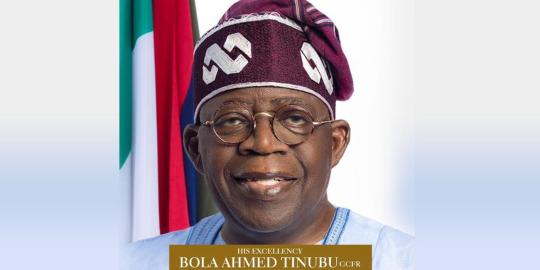
View On WordPress
0 notes
Text
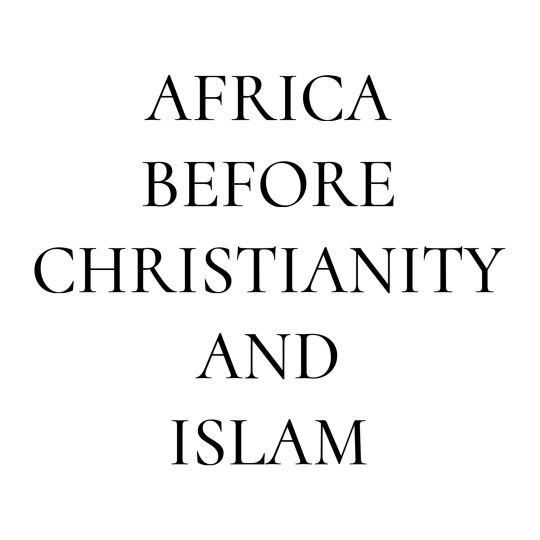
Africa has been very rich even before colonialism
The truth you should know about African
Blacks know your history and divinity
They gave us the Bible and stole our natural resources
Community and Social Cohesion: Traditional African religions often emphasized communal values, fostering a sense of belonging and mutual support within the community. Rituals and ceremonies were communal events that strengthened social ties.
Respect for Nature: Many African traditional religions were deeply connected to nature, promoting a harmonious relationship with the environment. This connection often led to sustainable practices and a respect for the natural world.
Ethical Guidelines: These religions often included moral and ethical guidelines that governed interpersonal relationships. Concepts such as honesty, hospitality, and respect for elders were commonly emphasized.
Cultural Identity: Traditional African religions played a crucial role in shaping cultural identity. They provided a framework for understanding the world, explaining origins, and passing down cultural practices through rituals, myths, and oral traditions.
Islam reached Nigeria through a combination of trade, migration, and cultural interactions. The trans-Saharan trade routes were crucial in bringing Islam to the region. Muslim traders from North Africa and the Middle East ventured into West Africa, establishing economic ties and introducing Islam to local communities.
The city-states along the trade routes, such as Kano and Katsina, became significant centers for Islamic influence. Merchants not only engaged in commercial activities but also played a role in spreading Islamic teachings. Over time, rulers and elites in these city-states embraced Islam, contributing to its gradual acceptance.
Additionally, the spread of Islam in Nigeria was facilitated by the activities of Islamic scholars and missionaries. Scholars known as clerics or Mallams played a key role in teaching Islamic principles and converting people to Islam. They often established Quranic schools and engaged in educational activities that promoted the understanding of Islamic teachings.
Military conquests also played a part in the expansion of Islam in Nigeria. Islamic empires, such as the Sokoto Caliphate in the 19th century, emerged through conquest and warfare, bringing Islam to new territories. The Sokoto Caliphate, led by Usman dan Fodio, sought to establish a strict Islamic state based on Sharia law.
Overall, the spread of Islam in Nigeria was a gradual process influenced by trade networks, migration, the activities of scholars, and, at times, military expansion. The interplay of these factors contributed to the integration of Islam into Nigerian society, shaping its cultural and religious landscape.
In the vast tapestry of Africa's rich cultural heritage, herbal traditional healing stands out as a profound and time-honored practice. African herbal traditional healers, often known as traditional or indigenous healers, play a vital role in the healthcare systems of many communities across the continent. Their practices are deeply rooted in the natural world, drawing on centuries-old wisdom and an intimate understanding of local flora.
African herbal traditional healers are custodians of ancient knowledge, passing down their expertise through generations. They serve as primary healthcare providers in many communities, addressing a wide range of physical, mental, and spiritual ailments. The healing process involves a holistic approach, considering the interconnectedness of the individual with their community and environment.
One of the hallmark features of African herbal traditional healers is their profound knowledge of medicinal plants. These healers have an intricate understanding of the properties, uses, and combinations of various herbs. Passed down through oral traditions, this knowledge is often a well-guarded family secret or shared within the apprentice-master relationship.
The methods employed by herbal traditional healers encompass diverse approaches. Herbal remedies, administered as infusions, decoctions, or ointments, form a significant part of their treatment. These remedies are carefully crafted based on the healer's understanding of the patient's symptoms, lifestyle, and spiritual condition. Additionally, rituals, ceremonies, and prayers are often incorporated into the healing process, acknowledging the interconnectedness of physical and spiritual well-being.
African herbal traditional healers frequently integrate spiritual elements into their practice. They believe that illness can be a manifestation of spiritual imbalances or disharmony. Through rituals and consultations with ancestors or spirits, healers seek to restore balance and harmony within the individual and the community.
Herbal traditional healers are integral to the social fabric of their communities. They often serve not only as healers but also as counselors, mediators, and keepers of cultural traditions. Their practices are deeply intertwined with community life, contributing to the resilience and cohesion of African societies.
While herbal traditional healing holds immense value, it faces challenges in the modern era. The encroachment of Western medicine, issues related to regulation and standardization, and the potential exploitation of traditional knowledge pose threats to this practice. However, there is also a growing recognition of the importance of integrating traditional healing into mainstream healthcare systems, leading to collaborative efforts to preserve and promote this valuable heritage.
African herbal traditional healers are bearers of an ancient legacy, embodying a profound connection between humanity and the natural world. Their healing practices, rooted in herbal wisdom and spiritual insights, offer a unique perspective on healthcare that complements modern medical approaches. Preserving and respecting the knowledge of these healers is not only crucial for the well-being of local communities but also for the broader appreciation of the diverse cultural tapestry that defines Africa.
#life#animals#culture#aesthetic#black history#history#blm blacklivesmatter#anime and manga#architecture#black community
123 notes
·
View notes
Text
More than 10,000 audience for Shaikh Fariq Naik’s Talk on Islam & Christianity - A Comparative Study at Usman Dan Fodio University, Sokoto, Nigeria on 1st November 2023.
2 notes
·
View notes
Text
NANA ASMA’U // PRINCESS
“She was a Fula princess, poet, teacher, and a daughter of the founder of the Sokoto Caliphate, Usman dan Fodio. She remains a revered figure in northern Nigeria. She is held up by some as an example of education and independence of women possible under Islam, and by others as a precursor to modern feminism in Africa.”
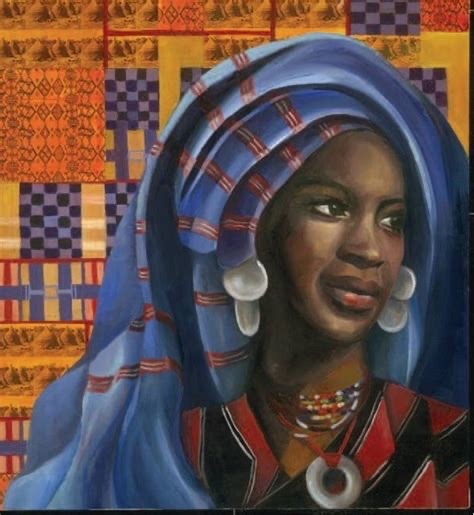
2 notes
·
View notes
Text
Electoral Injustice: Nigeria's Masses May Be Running Out Of Patience
By; AMB ALIYU BIN ABBAS
“A nation can thrive under disbelief, but not injustice” – Sheikh Usman dan Fodio.
“War they say isn’t about who is Right but who is Left”.
“Peace is not the absence of war but the presence of Justice”.
“Bad Judgement is A Threat To National Peace” says Justice Olukayode Ariwoola, Chief Justice of Nigeria.
All these maxims explain the Necessity of Justice in any…
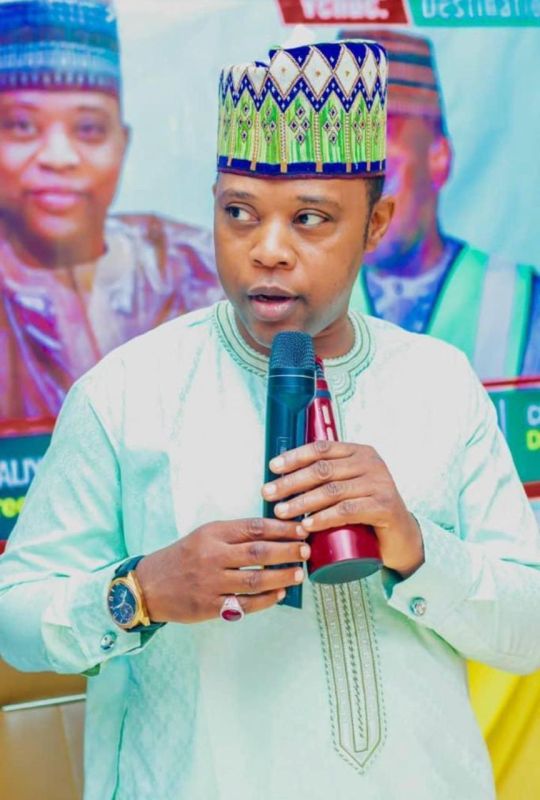
View On WordPress
0 notes
Text
History 101: What it takes to be a MENTALLY ENSLAVED Harlequin in Your ancestral Land.
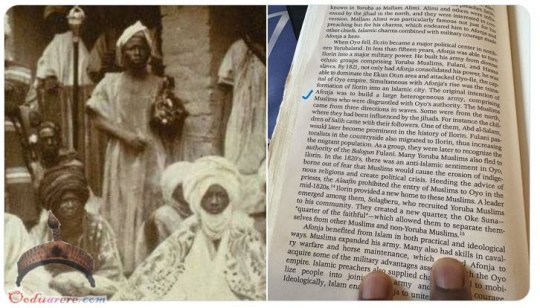
The quote for today is a page from Toyin Falola's book, 'Yoruba Warlords of the 19th Century'. To a lot of Yoruba Muslims. Islam means servitude to Usman Dan Fodio's estate at Sokoto. They indulge in the same idiocy that led to the fall of the great Hausa civilization. Many Yoruba Muslims from Oyo are a dangerously brainwashed set of people that would pose future danger for the preservation of Yorubaland like their ancestors who pledged allegiance to Ilorin and revealed many of the warfare secrets of Oyo.
leading to Emir Shitta’s decision to send Jimba. The general of his slave army to Oyo. With the role of confiscating all the Egungun dresses during the reign of Alaafin Amodo. This Egungun mysticism is the secret behind the expansion of Oyo from a boarder post kingdom into the greatest empire of the lower Niger. It was introduced during the reign of Alaafin Ofinran. This was the time the head of the Egugun mysteries called Alapini was added to the Oyomesi. The throne at Sokoto is the origin of many setbacks to Yoruba country.

When Salih, popularly known as Alfa Alimi put plans in place to get rid of Afonja and take the throne of his ancestors. He brought warriors who fought the Jihad at Sokoto. Some of them were led by one of his elderly sons. Abdulsalam, the warlord who would later rise politically at Ilorin to become the first Emir.
It was from Ilorin that many invasions into Yoruba heartlands led to the mass capture of Yoruba people who were sold into slavery at the coast.
One of the cities razed down at this time was Oshogun and one of the future legends captured from this city was Ajayi Crowther. With all the raiding and capture of Yoruba cities, a portion of the captives were sent to Sokoto as tributes to Sultan Belo. After the visit of Clapperton to Sokoto. with the desire of Europe to have a bilateral relationship with the caliphate.
Sultan Belo developed a near obsession for Yorubaland. When his emissaries gave him news of the country. He was amazed. In one of his writings, he wrote that. ‘Yaorubaland is an extensive province containing rivers, forests, sands, and mountains….. Also many great and extraordinary things.' At the battle of Otefan, when Ilorin saw the massive army led by Oluewu and Eleduwe of Bariba to meet the Emir in battle, Shita sent a message to Sokoto for help.
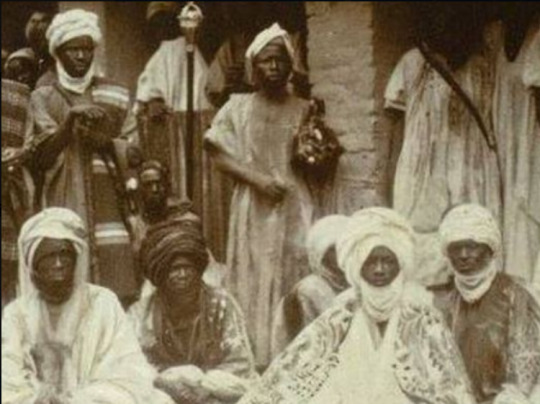
Sultan Belo sent 17 generals from his military base at Rabbah ( the birthplace of Ahmadu Belo, Sadaurna of Sokoto) leading calvary horsemen of close to 100,000 warriors. Thanks to the Military prowess of the Baribas and Oyo warlords, Ilorin was defeated in battle. Ojo Amepo… one of the legendary Kakanfos at Oyo, salvaged the Oyo army and built a coalition army of soldiers from Oyo and Ikoyi.
The future great Kakanfo Kurunmi fought under his banner. When he finally fell in battle against the caliphate due to treachery from within, his soldiers dispersed and many of the cities he protected in Yorubaland were evacuated. This was what led to the migration tensions in Yoruba country. the origin of the Ife/Modakeke crisis. Owu/Ibadan tensions. Egba/Ijaye fights and Ibadan/Egba wars.
All these tensions resulted from mass migrations from the North, by Yoruba people fleeing from the caliphate. Nigeria today, thorough treachery places the throne of Sokoto as the supreme authority for Islam. This happened during the junta of Babangida. The Kanuri people who are mostly Muslims rejected this. But many Yoruba Muslims.
Like the mentally enslaved idiots that they embrace overlords that nearly destroyed their heritage in the name of religion. The cognitive dissonance is why many mentally damaged religious slaves of Abraham do not understand why a man who rates Sokoto above Ife is not fit to rule the Oyo kingdom.
Many Hausa people were Muslims when Usman Dan Fodio launched his Jihad. Like the stupid Yoruba people who believe religion over DNA determines brotherhood in nationhood, they fell for a scam and today, they are second-class citizens in their ancestral home. To associate with the very throne that caused so much pain and sorrow to your ancestors in the name of religion is to be a MENTALLY ENSLAVED FOOL.
Read the full article
0 notes
Text
Sokoto: El inicio de Nigeria
El Califato de Sokoto, fue un Califato independiente Islámico Suní en África. Es considerado el antecesor inmediato de la República Federal de Nigeria (Exceptuando el dominio Británico en la zona).

Este estado permaneció en África desde el año 1804, fue fundado durante la Yihad de la Guerra Fulaní por Usman Dan Fodio.
Los límites del Califato se extendían por los actuales Camerún, Burkina Faso, Níger y por supuesto Nigeria.
Fue abolido cuando el Imperio Británico conquistó el área en 1903 y establecieron el Protectorado de Nigeria del Norte.
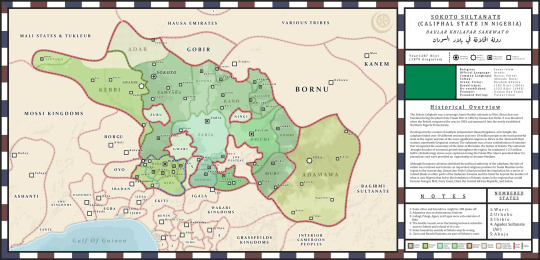
0 notes
Text
Five more abducted Kaduna train victims freed by terrorists
Five more abducted Kaduna train victims freed by terrorists
By our reporter| Five hostages abducted by terrorists on March 28 aboard the ill-fated Abuja-Kaduna train have been freed by terrorists.
A member of the negotiating team, Tukur Mamu who confirmed the release of the victims on Tuesday, gave their names as Professor Mustapha Umar Imam, a medical practitioner at Usman Dan Fodio University Teaching Hospital, Sokoto, Akibu Lawal, Abubakar Ahmed Rufai,…
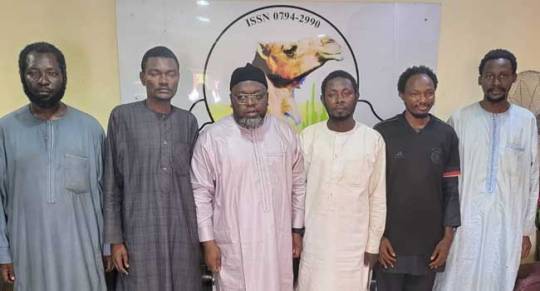
View On WordPress
0 notes
Text
The Sokoto Caliphate: History, Legacy, and Impact On One Of Africa's Powerful Caliphate In West Africa
OThe Sokoto Caliphate, also known as the Sultanate of Sokoto, was a powerful Sunni Muslim caliphate that emerged in West Africa in the early 19th century. Founded by the revered leader Usman dan Fodio during the Fulani jihads, this influential empire played a significant role in shaping the region’s history and continues to leave a lasting impact on contemporary Nigeria and West Africa as a…
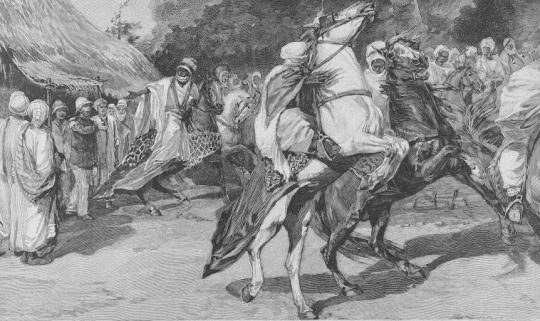
View On WordPress
#African empires#African History#African kingdom#Legacy#medieval African Kingdom#Sokoto Caliphate#Sultanate of Sokoto#Sunni Muslim caliphate
1 note
·
View note
Text
The Story of Nigeria :: Michael Crowder
The Story of Nigeria :: Michael Crowder
The Story of Nigeria :: Michael Crowder soon to be presented for sale on the inspired BookLovers of Bath web site!
London: Faber & Faber, 1962, Hardback in dust wrapper.
Includes: Black & white photographs; Black & white plates; Maps; Tables;
From the cover: Nigeria, the largest single state in Africa, has a known history stretching back nearly two thousand years. Much of it has only been…

View On WordPress
#african tribal society#atlantic slave trade#books by michael crowder#first edition books#fulani empire#history nigeria#niger delta oil markets#nigerian cultural development#nigerian cultural history#nigerian exploration#nigerian explorers#nigerian independence#nigerian missionaries#nigerian nationalism#nigerian slave trading ports#sudanese states#usman dan fodio#yoruba civil wars
0 notes
Text
Grazing sites: We defeated Usman Dan Fodio, we’ll fight with our last blood – Tiv youths warn Buhari
Grazing sites: We defeated Usman Dan Fodio, we’ll fight with our last blood – Tiv youths warn Buhari
Tiv Youth Organisations, TYO, worldwide, has vowed to defend their land with their last blood.
The youth were responding to the latest order issued by President Muhammadu Buhari for the review of 368 grazing sites across 25 states in the country.
The youths organisation pointed out that this particular move by the President has confirmed its fears and conviction that the current government is…
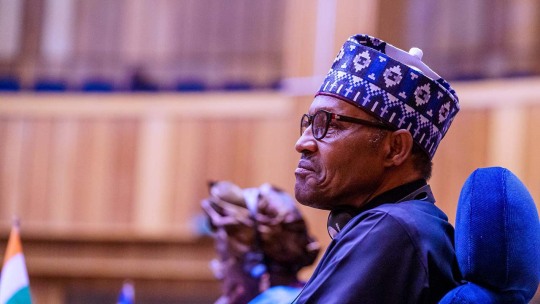
View On WordPress
0 notes
Text
Amina of Zazzau: Netflix and ahistorical film-making, By Ibrahim Lawal Ahmed
Amina of Zazzau: Netflix and ahistorical film-making, By Ibrahim Lawal Ahmed
…it is commendable to make a film based on an historical account and which is inspired by legendary figures, however filmmakers need to know that such films shouldn’t be contrived along Shakespearean lines. They need to do their homework to get the authentic account of the story they are re-narrating… the blunders of the Netflix film, Amina, should urge us to take the study of history more…
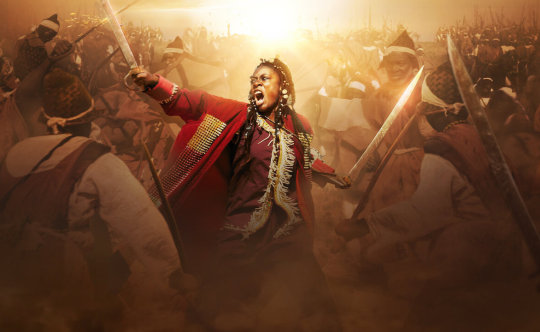
View On WordPress
#Amina#Hausa Culture#Islamic traditions#Netflix#Queen Amina of Zazzau#Queen Daurama of Daura#Sheikh Usman Dan Fodio#Zazzau Kingdom
0 notes
Note
Hello beautiful, I wanted to ask if you have any favourite or most cherished African or Arabic philosophers.
Would love to hear your choices x
Hi!
Ibn Arabi (Arab)
Usman Dan Fodio (Nigerian)
22 notes
·
View notes
Text

LIVE TODAY:
Shaikh Fariq Naik
Islam and Christianity – A Comparative Study
1st Nov, at 4pm (Nigeria Time)
Convocation Theatre, Usman Dan Fodio University, Sokoto, Nigeria
6 notes
·
View notes